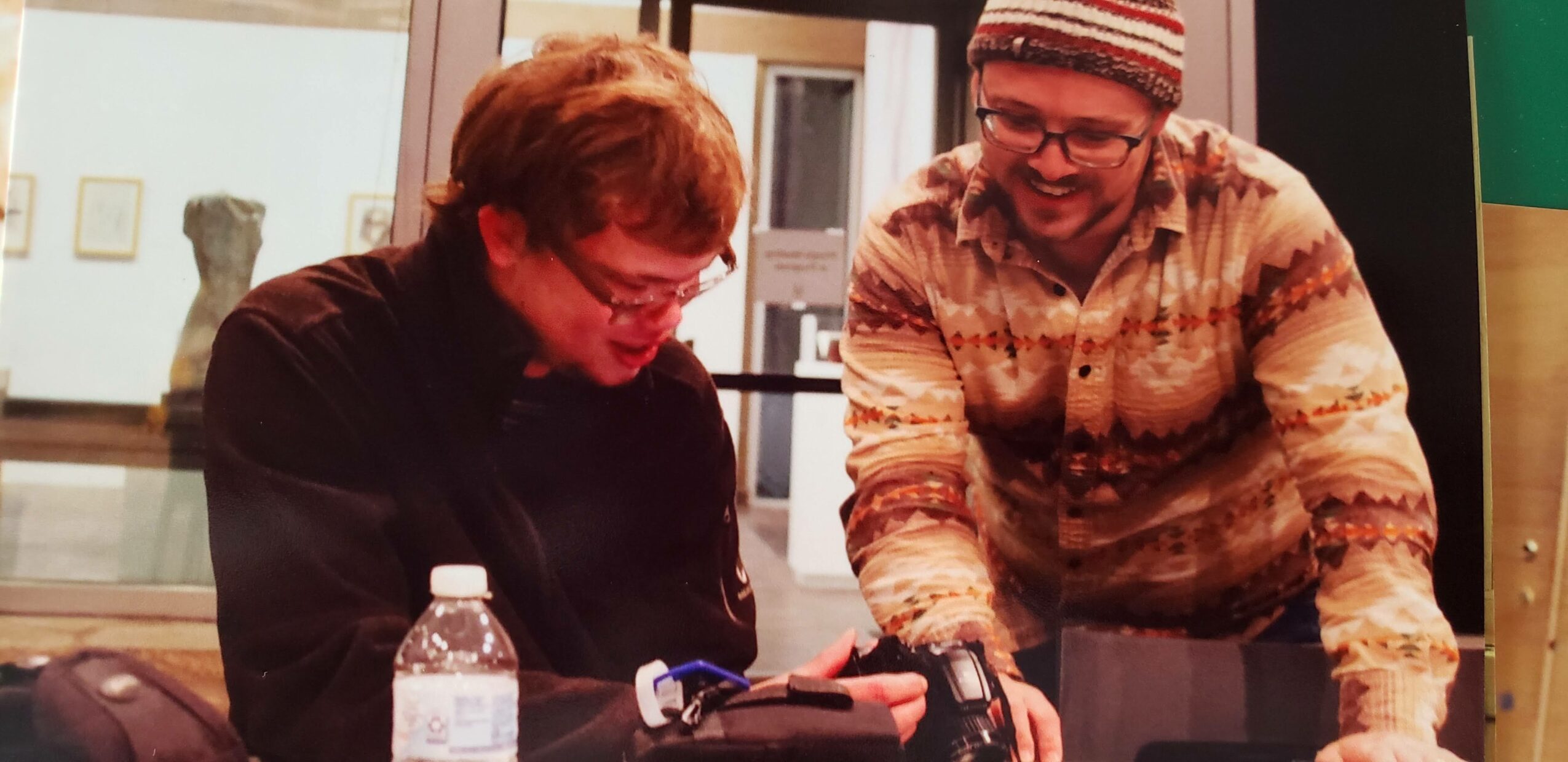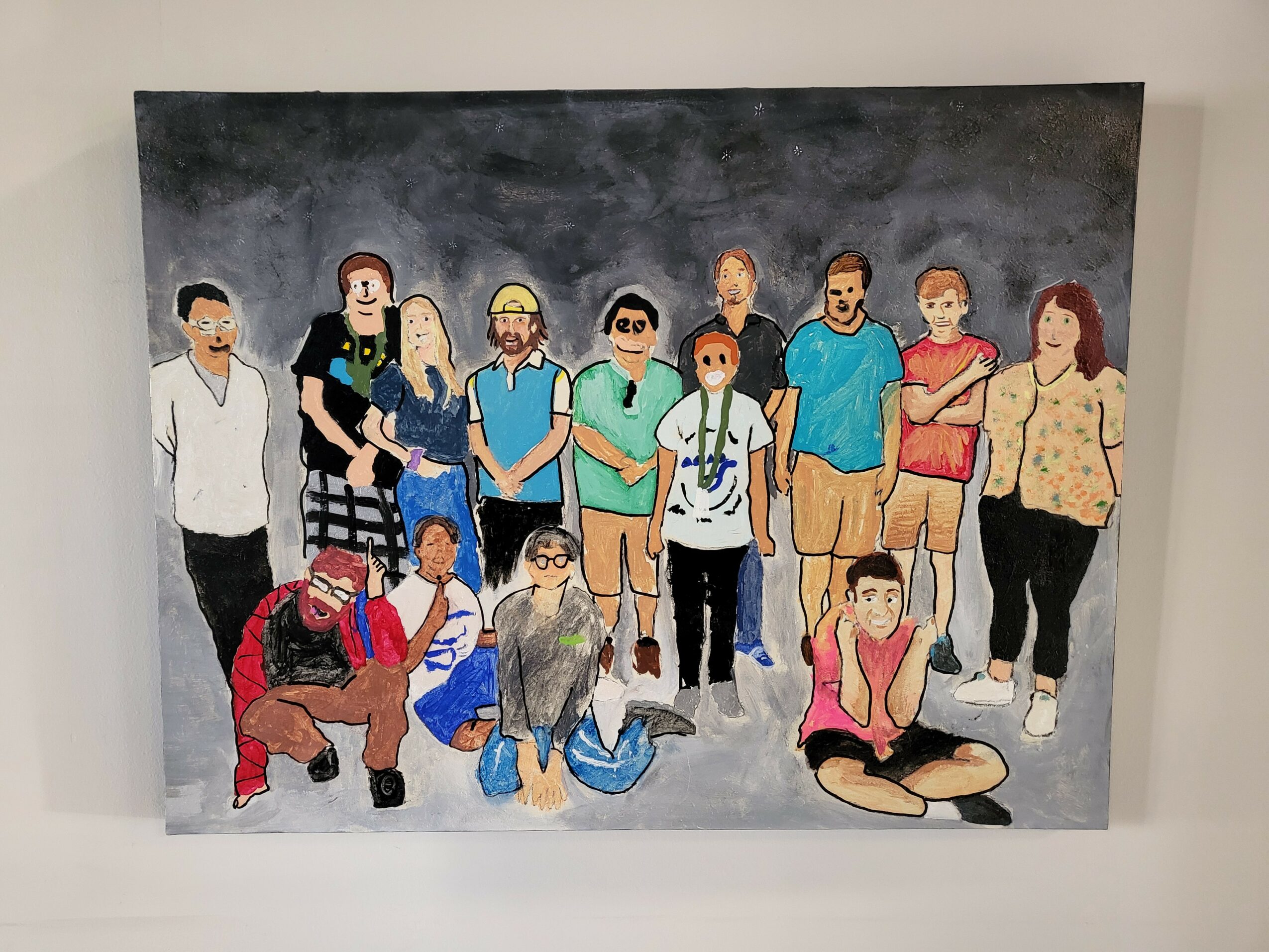

Today we’d like to introduce you to Mitchell Bowman.
Hi Mitchell, we’d love for you to start by introducing yourself.
I describe my professional journey as unconventional, and I’ll share a bit about it in hopes that a reader finds it helpful to know that career paths don’t have to be linear. (I know I would have benefited from that understanding in my youth.)
I’ve had some very different career interests and jobs over the years, from camp counselor to video editor to piano teacher to teaching artist, but I think that all of my experiences, and my nature as something of a creative generalist, gave me a strong foundation as an educator. I originally went to Ohio University to study film/media. Like many college grads, I adapted to any work that was available to me in my early 20s, which is how I ended up teaching piano for many years in Columbus. That reignited my lifelong passion for music, and I went back to school for music education only to discontinue that and work as a professional musician for several years. Like many others, music brought me to Austin, but it was through my work as a teaching artist at Creative Action that I finally found my focus in my 30s and realized that education was my “ikigai”.
Over the years, working with young people, I took a keen interest in wanting to help students with special needs be successful. I saw that after school programs, for example, were often not well-equipped or teachers trained, in how to accommodate these students and make programs inclusive. So, that became a focus for me in my work as mentor and eventual program director for teachers working in these programs, and I developed policies, trainings, and resources with this in mind. Not long after, in 2015, I was approached to develop a social and arts program for young adults with autism transitioning out of high school, which became the Social Creativity program. From that point on, working with young autistic and neurodivergent adults quickly evolved into my focus and passion. I felt a kinship with this community and realized that I had many strengths to share – we all tend to like things we’re good at, after all! In any case, when I learned that folks in the community were working to create a hub for neurodivergent adults in Austin–Greenleaf Neurodiversity Community Center–it was like a dream come true for me! I’ve grown so much and learned so much since stepping into my role as Director of Greenleaf. I’m still learning and open to what the future may hold, and I prefer it that way!
Alright, so let’s dig a little deeper into the story – has it been an easy path overall and if not, what were the challenges you’ve had to overcome?
Absolutely not! First, I think not having a clear direction or purpose for so many years in of itself was a major struggle. I grew up with a lot of the usual, sensible midwestern messages about how to establish yourself as an adult. I didn’t really feel like an adult until my 30s, and many of the routes I explored along the way, while fun or educational, didn’t check all the boxes for me. There was a lot of trial and error to figure things out and get to a point where I wasn’t constantly worried about how I would pay my bills. I’ve recently had insight into the fact that it was precisely at the times in life when I was unsure but took a leap of faith, without concern for what others might think or their advice, that I felt most alive and confident and whole as a person.
I sometimes joke about the fact that the areas I’ve focused on the most in my career–arts, disability, and education–are like the trifecta of underfunded fields. Everyone who works in non-profits long enough knows the systemic challenges. The particular challenges for the community I serve–autistic/neurodivergent people–are myriad and often misunderstood. 80-90% of autistic adults, for example, are underemployed or unemployed, though over half of this community have average or above-average intelligence. Social isolation, bullying in school, and mental health challenges also disproportionately affect this community. There’s still a lot of work to be done to improve systems and supports, as well as to educate businesses and larger society about the incredible (and under-tapped) value these folks can bring to their communities. There’s a lot of low expectations and ableism that still happens, unfortunately.
Neurodiversity has taken off as a movement in the last 10-15 years, but it hasn’t yet been fully embraced in many of the ways and arenas that truly matter in giving autistic and neurodivergent individuals agency, dignity, and opportunity. Fortunately, there’s a lot of smart and compassionate people working on these things, especially right here in Austin, and I’m grateful and still optimistic about what we can all accomplish together.
As you know, we’re big fans of you and your work. For our readers who might not be as familiar what can you tell them about what you do?
I’m the Director for Greenleaf Neurodiversity Community Center, which is a program of Easterseals Lonestar. Our vision is to create a community hub that fosters the abilities of people with autism and related neurodivergent conditions, so they reach their potential and thrive in the community, in the workplace, and in life.
We are known for our community school, which is a partnership with Austin ISD and provides 18+ transition services to students between the ages of 18 and 22 who have met their requirements for graduation, but who need additional time and support to transition to college or careers. Our educational programming includes work experience training and vocational rehab services provided through Texas Workforce Commission. We also provide social and recreational programs and a place of community belonging for roughly 150 Austin-area adults to develop friendships, practice social skills, and build skills for adulting and independent living.
I’ve strived to make us a place that values and embodies creativity and community. I think another thing that has set us apart is our explicit focus on serving folks with autism, ADHD, and related neurodivergent differences. Though every autistic person is unique, autistic people do have their own culture and shared experiences, and while there is value and importance in disability solidarity, there is also value and importance for people to connect with their own “neurotribe”.
What does success mean to you?
In my view, every time you build trust and understanding with someone, that’s success. Every time you help someone, whether it’s just to see things from a new perspective, or to accomplish something they’ve never done before, that’s a big success. My dad instilled in me the importance of helping others, whatever you do as a profession. I love the Ben Franklin idea of asking yourself two questions every day: In the morning, “What good can I do today?” and in the evening, “What good did I do?”
Contact Info:
- Website: https://www.greenleafncc.org
- LinkedIn: https://www.linkedin.com/in/mitchcreative/


















